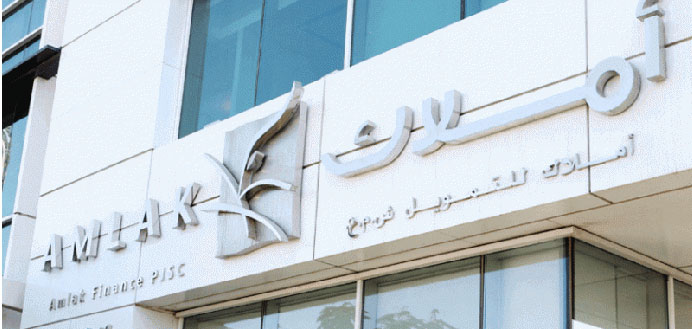Amlak, in which Emaar Properties holds a 45% stake, has reduced its exposure to proprietary real-estate assets and focused on property financing since its suspension, according to a company statement last week. Shares will open at 1.02 dirhams apiece, their last closing price, according to a spokesman for the Dubai Financial Market.
Bloomberg/Dubai
Investors will give their verdict on one of Dubai’s most intractable debt negotiations today as Amlak Finance shares resume trading after a six-and-a-half-year suspension.
Shareholders in the Islamic mortgage provider have been unable to offload equity since November 2008, when trading was halted before the UAE government intervened to rescue the company from insolvency. In that time, Dubai’s DFM General Index has doubled as Amlak cut its workforce by more than half and restructured $2.7bn of liabilities.
Analysts say it’s impossible to predict the outlook for shares that last traded when George W Bush was in the White House. The debt negotiations were the most protracted among a string of restructurings undertaken by Dubai companies in the aftermath of the global financial crisis, when asset prices collapsed and credit markets froze.
“There’s no benchmark” for shares that have been suspended so long, Montasser Khelifi, a Dubai-based senior manager at Quantum Investment Bank Ltd specialising in Shariah-compliant assets, said by phone on Thursday. “There are positive expectations, but at the same time they’ve been away a long time. Yes, the company cleared its balance sheet, but if you look at profits and losses, it’s still recovering.”
Amlak, in which Emaar Properties holds a 45% stake, has reduced its exposure to proprietary real-estate assets and focused on property financing since its suspension, according to a company statement last week. Shares will open at 1.02 dirhams apiece, their last closing price, according to a spokesman for the Dubai Financial Market.
Investor interest depends on the trading price, Sanyalaksna Manibhandu, the head of research in Abu Dhabi at NBAD Securities, the brokerage of the country’s largest bank, said yesterday.
“If Amlak starts trading at say, below 50 fils per share, the stock may attract some active traders who don’t already own it.” Manibhandu said by phone. “If it opens nearer the 1 dirham-per-share par value, you are likely to see one-way traffic. Sell orders only.”
Dubai’s midrange residential property prices have risen 81% from a five year low in April 2011, according to data from Cluttons.
Since the crisis the UAE central bank has limited mortgage lending and required larger downpayments for property purchases. The Dubai Land Department also doubled transaction taxes in 2013 as policy makers tried to avoid another property bubble.
While a revival of tourism, trade and real estate in Dubai has helped spur the DFM General Index to about a 106% gain since Amlak was suspended, not all of the emirate’s troubles have passed. Limitless, a state-controlled property developer, is working to restructure a $1.2bn Islamic loan for the second time.
Amlak’s own deal included a 20% payment with the remainder of the commercial debt to be paid over 12 years. The company will have to repay the UAE central bank and the Ministry of Finance over a period of six years.
“Investors have been locked into the shares, so we might see pressure” as the stock resumes, Vishal Gupta, a money manager at Rasmala Investment Bank Ltd in Dubai, said by phone on Thursday. “With the debt payments being pushed out by six years, that should be sufficient time. I think they are on the right track.”

